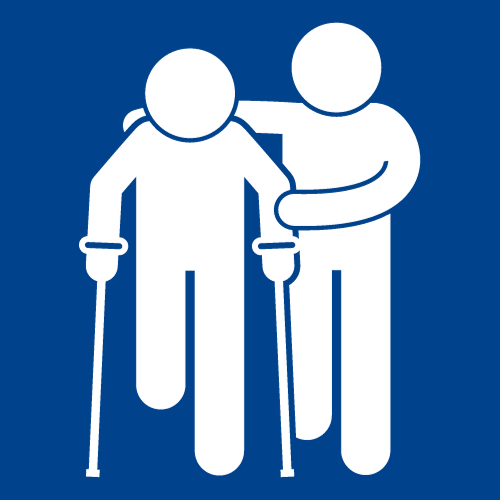As children of aging parents, one of our biggest fears is that our loved ones could fall victim to scams that target seniors. Unfortunately, scammers tend to prey on the elderly more frequently due to factors like cognitive decline, loneliness, and lack of technological savvy. However, there are steps you can take to protect your parents and intervene if you suspect they are being targeted.
Common Scams Targeting the Elderly
It’s important to educate both yourself and your parents on the most frequent scams. Some of the top ones include:
IRS Imposter Scams
This is one of the most prevalent. A scammer will call, claiming your parent owes back taxes and penalties. They will threaten arrest or other legal action if immediate payment isn’t made by wire transfer or gift card. However, the IRS does not call individuals without sending multiple notices by mail first.
Tech Support Scams
The scammer poses as technology support personnel and convinces your parent their computer has a virus. They instruct them to provide remote access and then install malware that steals personal information. Microsoft & Apple state they would never make unsolicited calls requesting access.
Romance Scams
These target widowed seniors through online dating sites or social media. After building trust, the scammer fabricates an emergency requiring your parent to wire them money. Once sent, all contact stops. Postal inspectors state elder romance scams have increased dramatically in recent years.
Grandparent Scams
A scammer impersonates a distressed grandchild claiming to be traveling abroad and needing emergency funds wired. Since scammers prey on seniors’ emotions and cognitive issues, they often sadly fall for it.
Charity Scams
These manipulate seniors into making donations that actually go to fraudulent charities or criminals directly. Scammers capitalize on elders’ generosity.

Recognizing the Signs Your Parent is Being Scammed
In addition to directly asking if your parent has been contacted by anyone asking for money or access to their computer/accounts, also watch for these common warning signs:
- Your previously frugal parent suddenly begins making frequent bank withdrawals or wire transfers
- They receive calls from numbers they don’t recognize and seem immediately agitated after answering
- You observe charges for large amounts of gift cards on their credit card statements when they seldom purchased these previously
- They become withdrawn, anxious, sad or confused after using the internet or answering the phone
- Scam mail starts arriving at their address with special checks requiring bank account info to deposit
- Your parent mentions helping someone named Steve from Microsoft fix their computer
Any of these signs should prompt further gentle investigation. Understand, however, that elders being scammed often feel ashamed and may become defensive. Reassure them that clever scammers frequently dupe even savvy people.
What to Do If You Confirm Your Parent is Being Scammed
If you unfortunately determine that your parent has indeed become a fraud victim, take the following steps right away:
Step 1: Contact Banks and Credit Card Companies
Report all suspicious charges or withdrawals and put holds on accounts to prevent further access. Watch statements diligently over ensuing months and dispute any additional deceitful charges.
Step 2: Call the Police
File official fraud reports with both local police and the Federal Trade Commission (FTC). These reports create crucial paper trails with investigative bodies and banks. Also contact agencies like the U.S. Postal Inspection Service if mail fraud occurred.
Step 3: Call Adult Protective Services
In many areas, social workers can provide scam intervention assistance and connect families to helpful community resources. They often coordinate with law enforcement as well.
Step 4: Notify the Scammer
This may seem counterintuitive, but experts recommend contacting any phone, email or address provided by the scammer to demand all contact with your parent cease immediately. This communication should come from an attorney if large sums were taken.
Document details of this notification, since scammers typically threaten increased harassment or violence when cut off from their victims. Any future contact attempts should be reported to the FTC.
Step 5: Seek Legal Counsel
Consult an attorney to determine if any civil remedies exist to recoup losses. If the scam occurred in multiple states or countries, the FBI and Secret Service may get involved.
Step 6: Ongoing Emotional Support
Your elderly parent will require special emotional support during this period of violation. Anxiety, depression, and trauma counseling often become necessary, along with added family contact. Constant reassurance must be provided that they did nothing wrong. Sadly, many elders suffer silent shame and don’t share their situations willingly. Constructive help requires compassion and patience.
Tips to Protect Elderly Parents Going Forward
Once an immediate scam ceases, families must take proactive, long-term measures to prevent repeat victimization. Consider the following:
- Assist your parent in creating secure, complex passwords for each financial account that only trusted parties know
- Set up multi-factor authentication wherever possible requiring secondary login confirmation via text messages or biometrics
- Monitor your parent’s credit report regularly for signs of new fraudulent activity
- Teach fundamentals of internet safety related to links, popups and providing personal information
- Download call blocking apps to prevent unwanted solicitations
- Register your parent’s phone number on the National Do Not Call Registry
- Speak to their doctor about memory and neurocognitive testing if cognition appears impacted, which increases scam vulnerability
- Have the bank flag unusual cash withdrawals or wire transfers for fast fraud intervention
- Conduct regular check-ins regarding any new calls, visitors or pleas made for emergency assistance
- Remind your loved one it’s okay to hang up and to never feel ashamed about reporting anything suspicious, no matter what threats a scammer makes
Sadly, in the digital age, criminals have limitless opportunities to exploit trusting seniors. However, taking protective actions and providing education and emotional support enhances elder security and reduces scam victimization. With proper diligence, families can help aging loved ones maintain independence while keeping predators at bay.






